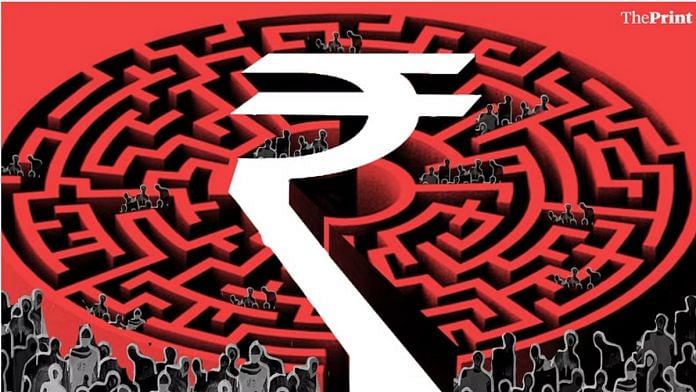India’s GDP is expected to grow by 6 per cent in the current financial year, and by a marginally quicker 6.2 per cent in the financial year 2023-24 that starts on 1 April, the United Nations said in its World Economic Situation and Prospects 2023 report released on Wednesday.
The UN report did raise caution over India’s rising interest burden due to its debt levels and rising interest rates. On the employment front, it stated that although the overall unemployment rate is at a multi-year low, concerns remain over unemployment among the youth and especially among young women.
“Economic growth in India is projected to moderate in 2023 (calendar year), with higher interest rates weighing on investment and slower global growth weakening exports,” the report read.
While the UN projected growth of 6 per cent in fiscal year 2022-23 and 6.2 per cent in 2023-24, it has lower projections on a calendar year basis.
“India’s GDP growth rate is projected to moderate to 5.8 per cent in 2023 from an estimated 6.4 per cent in 2022 as higher interest rates and a global economic slowdown will weigh on investment and export performance,” the report said.
Regarding the unemployment rate, the report noted that it had “dropped to a four-year low of 6.4 per cent in India as the economy added jobs both in urban and rural areas in 2022”.
The report added that in India, the unemployment rate in 2022 declined to pre-pandemic levels through stepped-up urban and rural employment. “But youth employment remained below pre-pandemic levels, particularly among young women, given the pandemic’s severe impacts on economic sectors where women tend to cluster.”
Also read: Taxing farmers’ income is ‘necessary’, says Chairman of PM’s Economic Advisory Council
Policies to increase resilience
The UN report also raised concerns over the rising interest burdens of developing countries, saying that in about a dozen countries, including several large economies–notably, Brazil, India, Nigeria, and Pakistan–estimates suggest that governments spent more than 20 per cent of revenues on interest payments in 2022.
“Higher interest rates are leading to higher debt-servicing costs for developing countries,” it added. “In India, the additional interest payments would amount to 8.7 per cent of total government expenditures, 1 percentage point higher than the share of education in the total budget in 2020.”
On the inflation front, the report said that it would ease to an average of 5.5 per cent in 2023 on the back of moderating global commodity prices and slower currency depreciation.
“Apart from restoring price stability through interest rate increases, India, Indonesia, Malaysia, and the Maldives, among others, are cushioning the impact of higher food and fuel prices through subsidies,” the report noted. “Policymakers should also explore policies to increase resilience and reduce exposure to future economic and price shocks.”
Some examples of such policies, it said, included avoiding restrictive export measures, introducing temporary trade liberalisation, releasing national oil reserves, boosting domestic energy production, and ensuring existing government assistance and subsidy schemes benefit those most in need.
In the medium run, the government could try to accelerate digital trade facilitation, diversify food import sources, and accelerate the transition towards renewable energy.
Also read: Newsrooms, consultancies all abuzz but missing key question: Is Budget important anymore?



